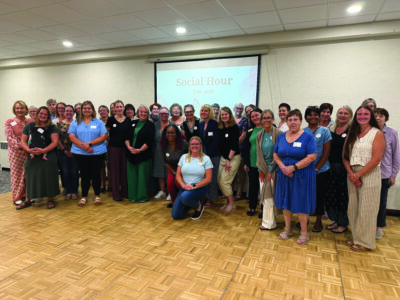Dear Annie
The Hidden Cause Behind a Loved One's Withdrawal

Dear Annie: Your column is a regular part of our home, and I truly appreciate the compassion and insight you bring to readers’ questions. I would like to gently offer another perspective, one that may sometimes be overlooked when people write in about the emotional withdrawal of a spouse, parent or longtime friend.
In some cases, what appears to be a change in personality, affection or connection may actually be an early sign of dementia. Especially in longstanding relationships, whether marriage, family or close friendships, people may begin to act in ways that seem confusing, distant or even harmful. But rather than a sudden loss of interest or love, these changes can sometimes be the result of subtle, progressive neurological decline.
I was especially struck by a recent letter from a 48-year-old man whose wife had withdrawn intimacy but remained affectionate with a brother-in-law. This pattern, though upsetting, reminded me of behaviors I saw in my own beloved husband when he was in the early stages of Lewy body dementia. At first, his actions seemed uncharacteristic, almost like he was trying to disconnect from our relationship. But over time, it became clear something deeper and far more serious was going on.
Because of his high intellect, extensive education and ability to speak multiple languages, he was able to mask the early signs. Even seasoned doctors were unsure what was happening until we pursued thorough neurological testing. Eventually, a diagnosis confirmed what I had quietly suspected for years.
I only share this to say that sometimes what feels like rejection or emotional distance is not the unraveling of a relationship but the beginning of something heartbreaking and deeply human. I hope you might gently remind your readers that in certain cases, what they are seeing might not be about love lost but about something that needs greater compassion, attention and care. — Caring Reader
Dear Caring: Thank you for your thoughtful and insightful letter. I am choosing to share it here because I believe your experience can help others recognize that when a loved one begins to withdraw emotionally or behave in uncharacteristic ways, the explanation may not always be emotional distance or fading affection. Sometimes, it is something deeper and far more complex.
As you so eloquently described, the early signs of dementia, particularly in highly intelligent and accomplished individuals, can be subtle and easily misread. A partner might begin to seem cold, distracted or even emotionally unavailable, which can leave their spouse or family members feeling confused, hurt or rejected. But as you pointed out, what appears to be a relationship problem can in fact be the quiet onset of neurological changes.
Your willingness to speak openly about your husband’s early symptoms and the long journey to a diagnosis is both generous and brave. It is a powerful reminder that love and attentiveness sometimes mean looking beyond the surface and considering the full picture, including medical and cognitive factors that are not immediately obvious.
I hope your letter encourages readers to respond with compassion and curiosity when someone they love begins to change. What looks like a relationship falling apart may, in truth, be someone slowly and silently losing pieces of themselves. Thank you again for helping us all see that more clearly.
“How Can I Forgive My Cheating Partner?” is out now! Annie Lane’s second anthology — featuring favorite columns on marriage, infidelity, communication and reconciliation — is available as a paperback and e-book. Visit http://www.creatorspublishing.com for more information. Send your questions for Annie Lane to dearannie@creators.com.
COPYRIGHT 2025 CREATORS.COM




